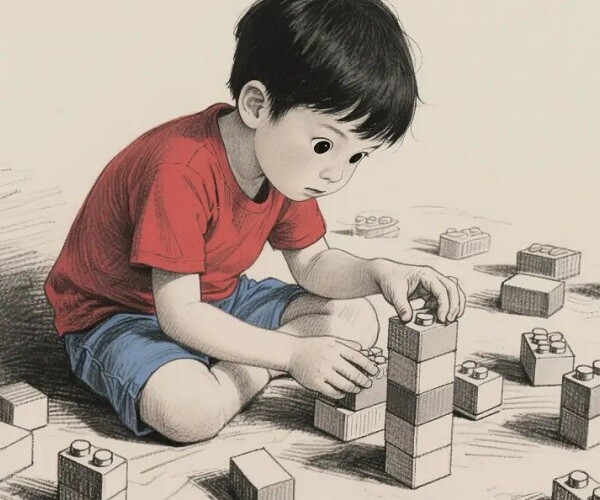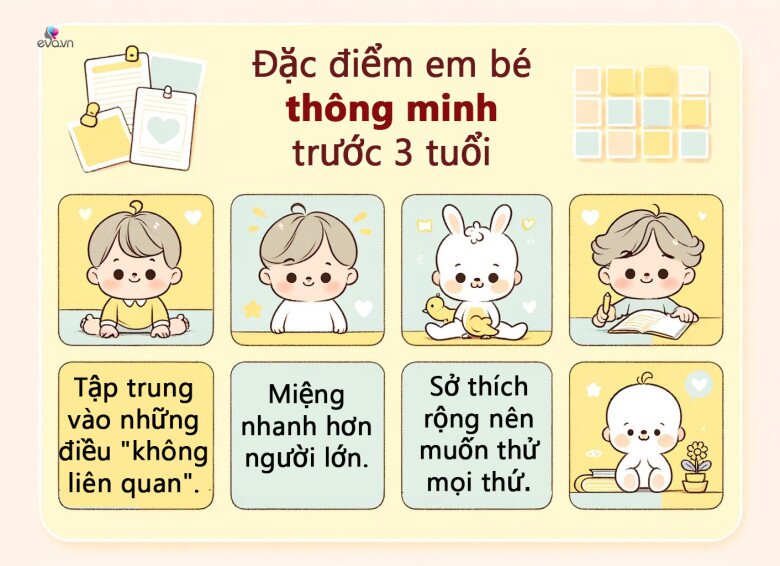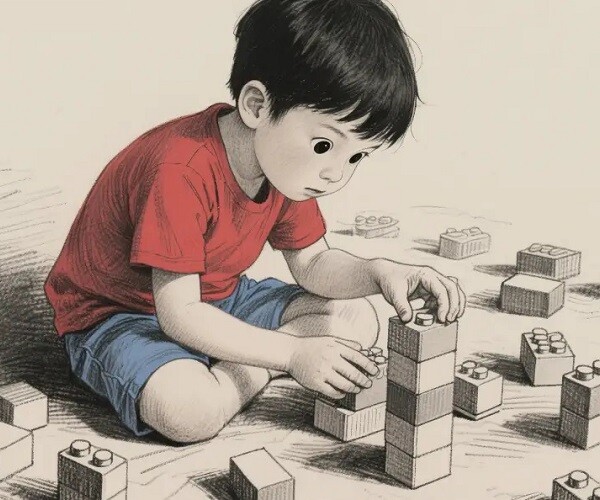Children at this age are often curious about the world around them. Some mischievous behaviors may be their way of exploring and learning. They are experimenting with boundaries and figuring out how things work.
If you observe your child exhibiting the following three behaviors consistently, it indicates healthy brain development and a high IQ. As a parent, your role is to guide them in the right direction and maximize their potential.


Focusing on “irrelevant” things
Your child’s intense focus on an activity, even ignoring your calls, might worry you. However, when they are deeply engaged with their building blocks, for instance, it indicates that their “focus neurons” are firing strongly.
This focus is a positive sign, showing that they are developing essential skills for future learning.
Children with strong focus tend to be more successful in their studies and life. When they concentrate on a task, their brain forms new neural connections, enhancing memory retention.

As a parent, if you recognize that your child is engaged in an important developmental activity, use it as an opportunity to foster persistence. For example, let them work on their block structures, finding logical arrangements, which will develop their thinking skills and teach them about patience and determination.
Tip: Avoid interrupting their focus. Instead, give them advance notice, such as “Meal time is in five minutes. Please finish up your play by then.” This approach respects their concentration, helping them prepare for the transition to a different activity. Advance notice makes children feel more secure and receptive to change.
This intense focus is a natural part of growing up, aiding their exploration of the world. By encouraging and respecting their unique personalities, you nurture their confidence and intelligence.

Their mouth is “faster” than yours
Some children are like little “radio stations,” talking non-stop and asking endless questions once they start speaking.
Questions like “Where does the sun come from?” “Why does the rainbow have seven colors?” or “Why don’t earthworms have eyes?” might seem like a nuisance, but these curious and chatty children are far from troublesome. Their language skills, memory, and logical abilities are often more advanced than their peers.
They think quickly, have rich neural connections, and are eager to express themselves and think independently. Curiosity is essential to their learning process.

Some children are like little “radio stations,” talking non-stop and asking questions.
Tip: Parents, be patient and listen. Encourage your child to ask questions, and work together to find answers. When children realize that their questions can be answered, their curiosity takes root, and that’s the first step to opening the doors of their minds.
Create fun activities to explore their questions. For instance, when they ask about rainbows, perform a simple experiment together to create a rainbow using water and light. This satisfies their curiosity and teaches them through hands-on experience.
By asking questions and seeking answers, children develop scientific thinking. They learn to observe, analyze, and form hypotheses, which are crucial skills for both academic and daily life.

A wide range of interests means they want to try everything
Children with multiple interests at the same time are considered intellectually curious. For example, they might enjoy playing with Legos in the morning, painting in the afternoon, and exploring nature in the evening. This “kaleidoscope curiosity” is a typical trait of intelligent children.
Their diverse interests indicate that their brains are scanning the world from various angles, seeking the most suitable areas. During this process, they learn about different aspects of life, discover their true passions, and develop adaptability.

Children with multiple interests at the same time indicate intellectual curiosity.
Tip: Avoid limiting their interests. Life is full of wonders to explore, so instead of forcing them into a mold, embrace their “trial and error” approach to finding their passion.
Sometimes, parents hastily label their children as “inattentive,” “too noisy,” or “disobedient,” unintentionally overlooking signs of high intelligence.
– Their focus on self-expression indicates strengths, and you can learn what sparks their interest.
– Talking a lot is a sign of quick thinking and good language skills.
– Multiple interests help them discover their future potential.
Every child is unique. As parents, guide and support them in finding their path, so they can shine in their own way.
The Harvard Study Reveals: Children Born in These Two Months Are Brilliant.
A groundbreaking study from Harvard University has revealed an intriguing correlation between a child’s month of birth and their future intellectual prowess. The research suggests that certain months produce a higher proportion of intellectually gifted children, with two months, in particular, standing out.






































